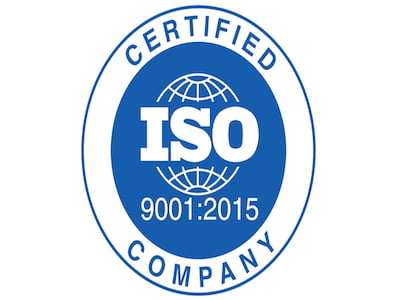
What Is ISO Certificate
Table of Contents
ISO certificate is a stamp of authorization by an autonomous body that a corporation adheres to per any standards determined by ISO (known as the International Organisation for Standardisation). It is a non-governmental and independent alignment that assembles specialists to exchange facts and make international norms that promote the development of the latest technology and provide answers to global challenges. Its main goal is to foster trade, but its principle is on process improvement, safety, and quality in several areas.
ISO accreditation may immediately increase confidence among stakeholders, employees, consumers, management representatives, and purchasers.
Also Read: Types of Companies And Registrations – Explore 7 Types of Company Registration In India
ISO Certificate Types
There are many types of ISO certificates. Let us explore!
1. ISO 9001
It is one of the most widely used methods for designing, implementing, and maintaining a “Quality Management Program” that applies to a specific firm AND can be adapted to any size of business and funding.
2. ISO 14001
ISO 14001 is a handbook that outlines what should be done to exemplify an environmental management system (EMS). It consists of processes, strategies, procedures, policies, and papers that outline the general principles for how your company interacts with the ecosystem. The world has approved the 2015 standards.
3. OHSAS 18001
The norm/regulation summarises what is required to complete an occupational safety and health management program. It includes processes, rules, practices, plans, and records as well as health and safety regulations.
4. ISO 45001
Then norm offers a plan for workplace safety and health. It regulates hazards identification, operations, risk assessment, techniques, processes, programs, and documents that check health and security laws.
5. ISO 27001
ISO 27001is a data protection model, and it selects the management program only to develop the safeguard of the information under surveillance supervision
6. ISO 22000
ISO 22000 accreditation criterion has described the capabilities of an effective food safety management system (FSMS). This system allows any entity to request a chain to build, implement, operate, manage, and upgrade in accordance with their intended function.
7. ISO 50001
ISO 50001 provides enterprises with a globally recognized framework for improving energy efficiency. The credential controls recordkeeping and monitoring of power consumption and performance, which the corporation will oversee and govern.
8. ISO 20000
This model aims to provide effective IT Service Management to any organization. It has an impact on the company’s operation as well as how you engage. It’s an important component of how you run an organization.
9. ISO 31000
It all ultimately comes down to a risk management framework that reflects on the fundamentals and processes for confirming the security and operational risks using an internationally accepted benchmark. The ISO 31000 certification standard promotes the company’s performance. It directs organizations, creates opportunities, and offers tools for risk-related management.
Also Read: 5 Tips To Start A Small Business For Women Entrepreneurs
Benefits of ISO certificate
The benefits of ISO certification are:
1. Determine risks and opportunities
ISO 9001, the widespread quality leadership standard, asks you to spot potential risks to your business and direct them in a structured way. This risk-based thinking results in infrequent amazement, improved planning, valuable decision-making, and more profitable relationships with suppliers, clients, and employees.
2. Dissuade concerns from reoccurring
Frequently companies repeat identical errors because they don’t have a procedure to record good problems as they occur. ISO requires you to keep up careful records of troubles, hunt down their root reasons, and are available with lasting solutions.
3. Encourage your marketing and sales steps
Internationally identified quality management method, achieving an ISO credential will support your dealing and help improve your sales. Many extensive communities need their suppliers to be ISO authorized.
4. Enhance employee version
Employee confidence improves once they know you’re determined to eliminate waste and assemble the best quality products and benefits. ISO also requires you to define tasks, eliminate skills gaps in your business and express your quality policies to workers.
5. Improve your authority over the enterprise
ISO demands you monitor, estimate, analyze and consider the effectiveness of your differentia administration system. So that you may develop performance metrics that allow you to estimate how well you’re accomplishing it.
Also Read: An Overview Of MSME Registration In India: Process & Benefits Discussed
How to get ISO certification
Here is how you can get ISO certification:-
- Picking the sort of ISO Certification
Pick the one you need to have:
- ISO 9001 2008 – Quality Management
- ISO 14001 – Environmental Management
- ISO 27001 – Information shield Management
- ISO 22008 – Food Management
- Select an ISO Certification Body and estimate several ISO Certification benefits providers.
Inspect if they’re following the CASCO norms. CASCO is the ISO committee that operates on issues directed to harmony assessment.
Check if it is accredited or not. Accreditation isn’t compulsory, but they have to satisfy the conditions of ISO Accreditation bodies.
Strategy for ISO Certification in India
- Make an application /contract
- Differentia Documents Inspection
- Assemble an Action Plan
- Initial Credential Audit
- The initial credential audit is split into Stage 1 and Stage 2.
Stage 1: The ISO auditor will audit the changes you make within the organization. The feasible non-agreements in your methods and procedures to the mandatory quality management technique.
Stage 2: The auditor will determine whether all the non-conformities are eliminated or not as per ISO quality standards. Then the auditor will move ahead with the process.
- Achieving the ISO Certification
After all, non-accords are managed, and the results are put within the ISO audit report, the registrar will award you the ISO certification.
The auditors will help you to know about the validity of the certificate, and it is also mentioned on your portal.
Also Read: Udyam Registration Online For MSME’s
The cost required to make ISO certification
The ISO certification cost isn’t yet fixed and ranges from organization to organization. The ISO certification tool calculates the price of ISO certification individually for every association after looking at some parameters of the industry. The time needed to complete the procedure of ISO certification is about
- Undersized associations: 6-8 months
- Medium associations: 8-12 months
- Big associations: 12-15 months
Conclusion
The ISO certificate is a document that certifies that a company has met the requirements of an ISO standard. This certificate is often required by customers and regulatory authorities for certain products and services. And, the ISO certificate cost depends on the type of ISO you are opting for, like the cost of ISO 9001 is around Rs. 3,999/- only.
The ISO certificate is important for companies because it shows their customers and stakeholders that they are committed to delivering the highest quality service possible. This certificate ensures that the company’s processes are effective and up to date with industry best practices. It also certifies that they have an established quality management system that has been audited by a third-party organization.





